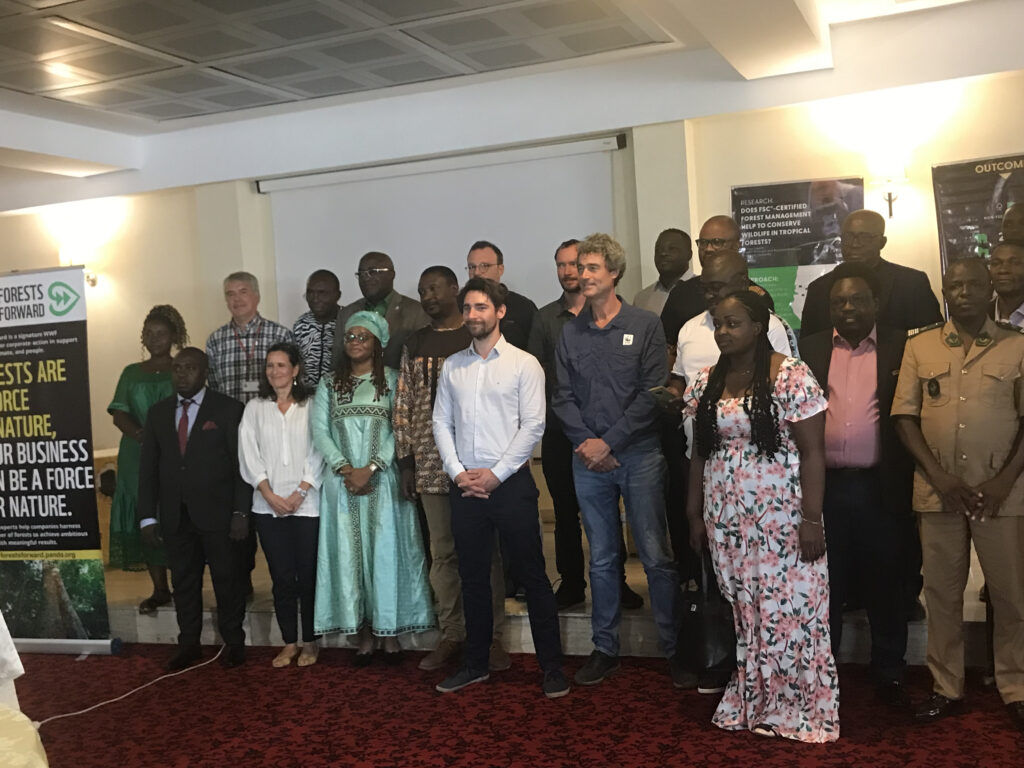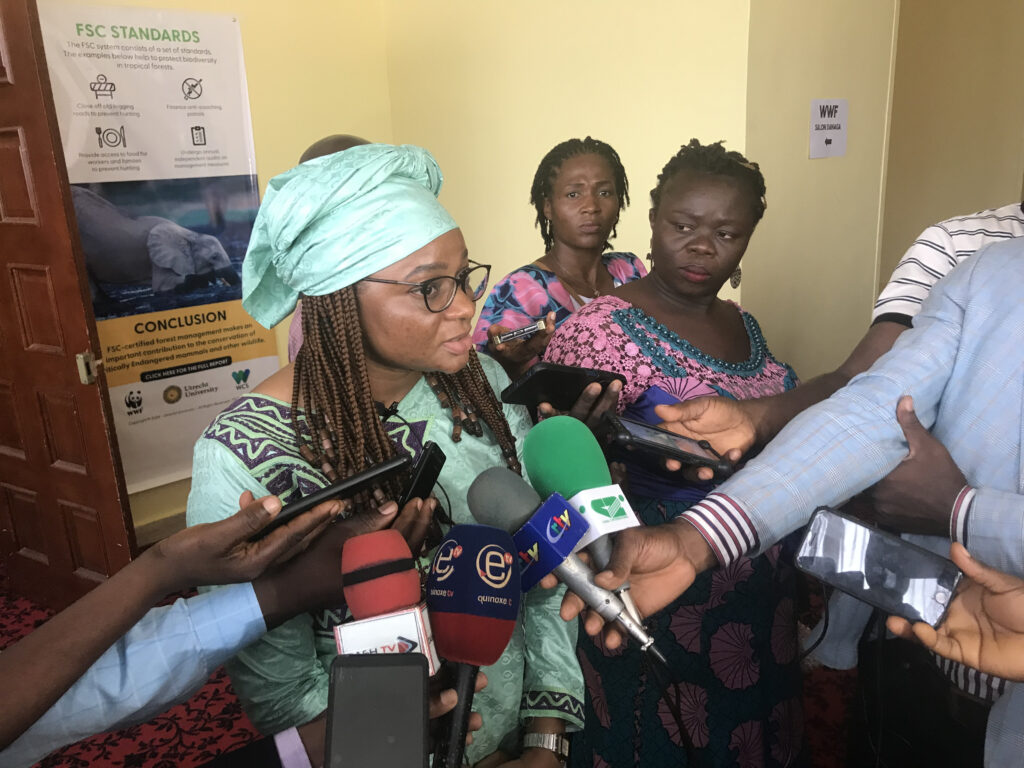By Leocadia Bongben
A study conducted in Gabon and Congo found that animals weighing more than 10 kg are more abundant in FSC-certified concessions than in non-FSC-certified forests. The Forest Stewardship Council (FSC) is a collection of rules focusing on social, economic, environmental, and legal aspects.

Presenting the findings (published in Nature), the researcher, Joeri Zwerts, PHD, Assistant Professor, Science, Biology, and Environment Ecology and Biodiversity at Utrecht University, stated that numerous roads are opened up for logging, allowing for a lot of hunting on non-certified FSC concessions. Wildlife cannot recuperate soon enough, and their population dwindles in such concessions. Contrariwise, an “FSC-certified forest concession has a lot of regulations, including the closure of the logging roads, the provision of alternative protein to people in the logging camps, a measure to prevent hunting, and ensuring wildlife is protected effectively,” according to Zwerts.
He went on to say, “Wildlife serves a crucial purpose in tropical forests, and areas without animals will store seven percent less carbon than forests with animals. This is because the animals disseminate the seeds of huge trees, which store more carbon; thus, losing elephants means losing carbon.”
FSC-certified enterprises are profitable; however, more investment is required to benefit wildlife and employees, he stressed.

Wandja Mbianda Carmen Stephanie of Africa FSC Membership said the study could encourage not only companies interested in FSC certification but also other stakeholders such as the government, funders, and non-governmental organizations (NGOs) involved in the sustainable management of certified forests and the protection of communities that live there. FSC has been around for a while, and FSC-certified companies respect not only the working conditions of their employees but also the communities’ management of natural resources from these certified forests, as well as the management of the forest and forest resources in and around the certified concession.
Cameroon was one of the first countries to become certified in 2005. Around one million hectares of forest were certified in 2013, but some companies lost the certification. FSC certification begins with the company’s engagement and commitment. It is a type of contract in which two or three parties agree on a price. Aside from that, there is a cost associated with the certified area that must be sent to FSC. In addition, a price or tax must be paid to the community.
The difficulty with FSC certification is that it is subject to a single country’s government policy. Gabon, for example, mandated that all of its logging concessions be FSC-certified. The rising market for uncertified timber and forest products, as well as the high cost of certification, provide additional challenges to certification. There are just a few technical personnel covering a geographical area; hence, there is a need to increase technical capacities.

Jaap Van der Waard, WWF Conservation Director for the Congo Basin, stated there was long-standing opposition to logging in tropical nations because people were anxious that the forests would disappear as the countries’ economies grew. WWF and other organizations, including corporations, felt that it was advantageous to establish a system that allowed for logging without damaging the forest negatively or impacting the people.
After years of arguing that this system benefits people and forests while also generating tax income for the government, WWF partnered with a university with the funding and capability to carry out the study to uncover the truth.
“Indeed, after all these years, FSC has prompted these corporations to manage their forests in ways that benefit wildlife, particularly endangered species such as forest elephants.” Jaap van der Waard commented. To him, this means that throughout Europe, the United States, and around the world, telling communities, buyers, and businesses to buy FSC is evidence-based.

“To aid Cameroon’s forests, companies that care about elephants or gorillas and wish to acquire tropical timber can use FSC lumber to help protect the species, he concluded.

